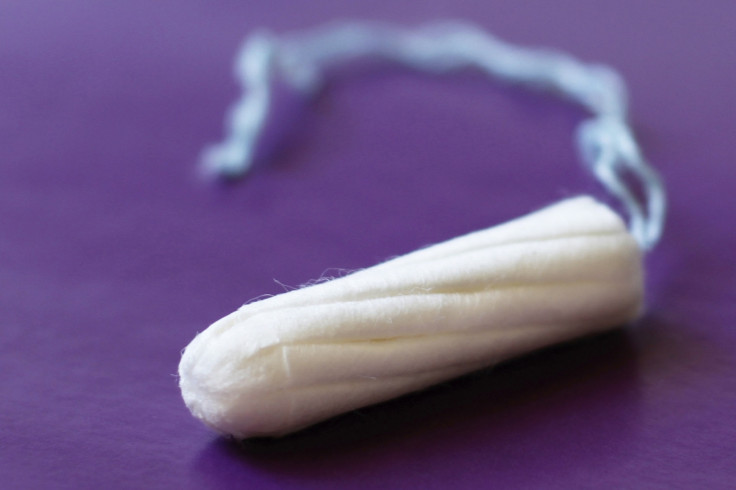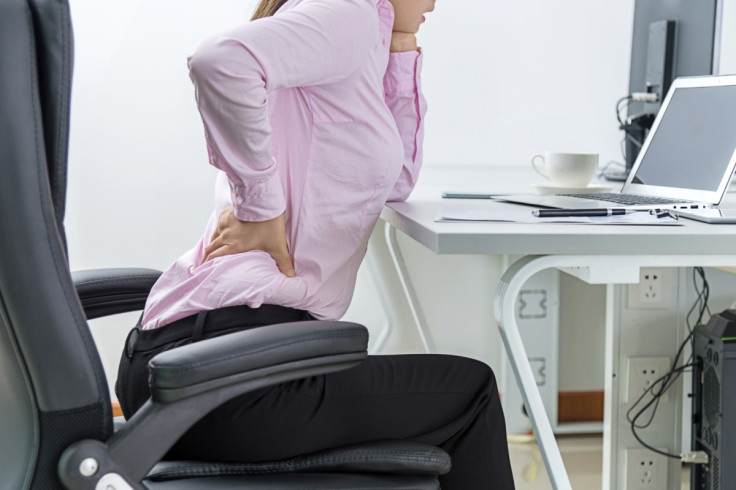Period policy: Why menstrual leave marks an 'enlightened era' of valuing women in the workplace

Millions of women around the world suffer from period pain. And aside from evading PE classes at school, "I'm on my period" is rarely considered an excuse for anything. Yet now, a company has brought the conversation of menstruation into the workplace – by planning to introduce a "period policy" to allow female staff to work flexibly around their menstrual cycles.
Coexist, a Bristol-based firm, says women will be allowed to take time off during their period and make up the time later. The idea will be properly developed in a seminar lead by Alexandra Pope, a women's leadership coach and an educator in the "field of menstruality". Speaking to IBTimes, she explains the benefits of menstrual leave and why we need to bring the conversation about periods into the workplace.
"It has nothing to do with women getting special concessions or working less," Pope says. "It is about offering flexibility. So it might be that women can work from home, or come into work a little later. With more flexibility, we can deliver a lot better and be a whole lot healthier to boot.
"The benefits are that you are healthier, happier and in touch with your needs," Pope adds. "Working with your natural rhythms means your creativity and intelligence is more fulfilled, which has to benefit your work and business."
Despite the majority of women taking painkillers and trying to carry on as normal, dysmenorrhea – the clinical term for painful menstruation – interferes with the daily lives of women. Around 90% of menstruating women experience pain and discomfort during their period, according to the NHS. A professor of reproductive health at University College London recently said cramping can be "as bad as having a heart attack".
Menstruation has frequently been described as the "last taboo" and is rarely a hot topic in the workplace. But according to the NHS, around 14% of women report being unable to go to work due to the pain.

"At the time of second wave feminism – which was my generation – it was all 'don't mention menstruation – we don't bleed, we don't have babies, we are just like blokes' and that is how we broke through," Pope says. "But we have come far enough to say, you know what, we are different. We have a menstrual cycle. We have come far enough that we need to have this conversation now.
"I want to consign the idea that women should just take painkillers and carry on to history. Painkillers are great in an emergency, but they are not a long-term remedy."
The concept of period leave is nothing new. In several east Asian countries, the idea has been enshrined in law and is as common as maternity leave. Japan has allocated leave for women on their periods since World War II, when at the time the law was written, women were entering the workforce in record numbers in factories and mines – where there was little in the way of sanitary facilities. In Indonesia, under the Labour Act of 1948, women have a right to two days of menstrual leave per month.
As these countries move towards greater gender equality, however, the practice of menstrual leave has come into question. Does taking leave further the notion that women are weak and helplessly bound by their monthly cycles? Or is it a solution which accommodates the biological needs of women?
"Historically, where there has been period leave for women in Asian countries, such as Japan or Indonesia, it means menstruation has been seen as an illness or weakness," Pope says. "Therefore women don't want to take it up because it feels like a retrograde move. We are dealing with this legacy everytime we talk about period policies, so what Coexist wants to do is turn this conversation around. I want to present the menstrual cycle as a positive thing – as a rhythm you can work to."

So how do you turn period leave into a viable option for all women? The unpredictable nature of cramping means categorising the pain is difficult, but Pope says it will largely be a case of honesty.
"I think it would come down to a kind of honesty system, on a needs basis, but making sure there is a quiet understanding that the policy is available. This is so important for women who really suffer to make sure they are not stigmatised. Women who suffer still take the time off, but they have to cover it up in all sorts of creative ways. It would be nice if they didn't have to do that."
As always, there is a risk someone will take advantage – but the period leave benefits outweigh the risks. Pope says one woman, who works in administration at a university, had taken days for period leave for a year with substantial benefits. "She noticed she was less stressed, more relaxed and more effective at work – and she said her pain had reduced. And because of that, she is now not taking the day off. It's brilliant."
But would a period policy work across all sectors? "I'm well aware there are some industries in which it might be difficult. One person I spoke to mentioned flight controllers and how we would be left with aircraft circling airports – that won't be the case. If there is a huge project with a looming deadline, of course we will be working.
"This is a new endeavour and there are a lot of things to consider," Pope says. "But it is about moving into a more enlightened era of valuing women and their bodies."
© Copyright IBTimes 2025. All rights reserved.






















